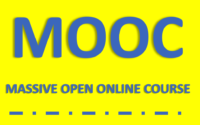
HOME / ARCHIVES / VOL. 28 (2020) / Original Research Articles The effects of a Moodle-based instructional unit on physical activity in schools on 15–20 years experienced permanent Irish primary teachers physical activity knowledge, attitudes and behaviour
Childhood obesity is nearing epidemic proportions in Ireland and abroad. Childhood is a key period in the prevention of obesity and additional conditions that are associated with a sedentary lifestyle. The study aimed to discuss the effect of a short eLearning course for Irish primary teachers and its effect on their behaviours, attitudes and knowledge […]
















